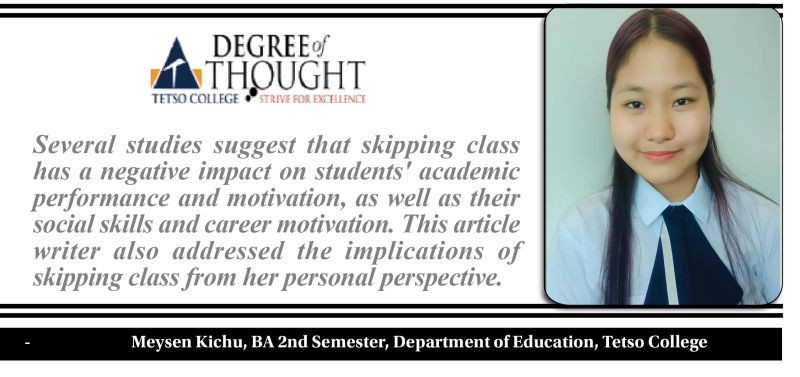
One of the main reasons that students pursue higher education is for career development. The role of higher education is to guide students towards achieving that goal, and attending college not only increases knowledge and skills but also guide the students towards a better future. There is also no doubt that the level of access to resources and opportunities available is not the same for everyone, depending on our socioeconomic background, but it is also true that long-term success in a career depends highly on a person's level of commitment and motivation, and taking up courses and going to college does not guarantee success in your career or in life. What really matters is how we make use of our time in college.
As students, it is important to remember the hardships that parents go through to provide us with the opportunities we have today. Without this realization, it is easy to take them for granted and not appreciate the value of education. Many students in our generation attend college for the sake of attending, either because we prefer attending college over getting a job or because our families advise us to, but if this is the only reason and we lack our own set of goals and motivation, it leads to us not taking college life seriously, losing interest, and eventually skipping classes without considering the consequences.
One of the biggest issues that we see among higher secondary institutes is the common practice of students skipping class and the consequences of it. Skipping classes can seriously harm their academic performance because, when students skip lessons, they become disinterested in their courses. For instance, if someone skips class, they miss the chance to learn directly. Even if they are able to learn from their peers, their technique of understanding would be different because, as we frequently hear, nothing beats the skill of hearing with one's own ears. Even if a person believes that they are following the lessons the teachers are teaching, variances will inevitably arise, making it challenging for the students. Students who skipped lessons would be deprived of the chance to receive mentorship from the teachers as well, missing out on numerous opportunities and guidance.
Also, that is not the only disadvantage of skipping classes; they missed most of the important lectures and notes provided in class, which affected their performance in exams. This only led to dissatisfaction within oneself and, in the end, the loss of interest in the course. Overall, the choice to skip class really depends on something called opportunity cost. If the opportunity to do something useful or beneficial means skipping class, then it may be worth the cost of skipping that class. However, for the vast majority of the time, class is the most worthwhile or beneficial use of our time for that hour. It is important to get the most out of your education and your financial investment, and that means going to class.
Therefore, before it is too late, every student must have a clear vision of why we should be very serious about attending classes and being present in class. Also, it must be made very clear that attending classes does not only mean being physically present; we should be mentally present as well. Only then will we achieve the true essence of learning. Given that it is obvious that skipping classes causes us to veer off the set path of our career, we must pause for a moment and contemplate whether doing so will benefit us in the long run. Being sincere is one way to success and the small step we can take now as students is to attend regular classes.
The Degree of Thought Column is a weekly community column initiated by Tetso College in partnership with The Morung Express. The column explored contemporary social, cultural, political, and educational issues and challenges around us. However, the views expressed here do not reflect the opinion of the institution. Tetso College is a NAAC-accredited, UCG-recognized Commerce and Arts college. Currently, the Degree of Thought Column is managed by the department of Mass Communication, and the editorial team are Dr Jenny Lalmuanpuii, KC Gabriela and Rinsit Sareo. For feedback or comments, please email:
dot@tetsocollege.org.






